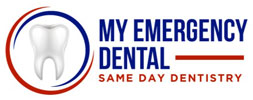What are The Biggest Signs That Wisdom Teeth Need to Come Out?
Decay, Infection, Gum Inflammation , Or Partial Impaction
Indications that wisdom teeth should be extracted include decay, infection, gum inflammation over the tooth, or partial impaction that will cause damage to an adjacent tooth.
1. Decay
Decay is a common problem in third molars (wisdom teeth). The teeth are very far back in the mouth, and most people are unable to maintain these teeth without developing cavities. Typical cavity restorations (such as composite and amalgam fillings) are often challenging or impossible due to the location of the tooth in the mouth and/or the irregularity of the tooth’s anatomy.
2. Infection
An abscess (infection) is usually the result of untreated tooth decay in a wisdom tooth. This is often, but not always, accompanied by pain and/or swelling. While the infection could theoretically be treated with a root canal, the position of the tooth makes this challenging, and there is generally limited/no benefit in doing a root canal on a non-functional third molar.
3. Gum Inflammation
Gum inflammation and/or gum discomfort around the wisdom tooth is another common symptom with problematic wisdom teeth. Particularly with wisdom teeth that are partially impacted (in other words, not entirely broken through the gums), food and debris gets stuck underneath the gum line and leads to inflammation or infection. In other cases, the flap of gum tissue that is over the wisdom teeth is actually hitting the opposing tooth when a person bites. In this case, often an operculectomy (removal of the offending gum tissue) is necessary. Because the operculum (gum tissue) often grows back and causes the problem again, it may be preferable to simply remove the wisdom tooth and eliminate the source of the problem.
4. Partial Impaction
Lastly, it is common for partially impacted wisdom teeth to cause bony defects in the second molar (the tooth immediately in front of the wisdom tooth), or to create a food/plaque trap that results in decay of the second molar. Because the second molar is more important and functional than the third molar (wisdom tooth), it is generally recommended to remove the wisdom tooth if we have to decide to save one tooth or the other.
Decay, Pain or Jaw Stiffness
Decay
Wisdom teeth, located at the back of the mouth, are often harder to clean effectively, making them more susceptible to cavities. If decay progresses and compromises the structural integrity of the tooth, extraction might be recommended to prevent further damage and potential pain. Furthermore, damage can result from the tooth’s position or from impaction, leading to fractures or cracks that are difficult to repair. In such cases, extraction becomes a practical solution to avoid ongoing discomfort and maintain overall oral health.
Pain
Wisdom teeth that are partially erupted, or growing at an awkward angle can lead to pain and discomfort. This pain might radiate to surrounding areas of the jaw, face, or even the head. If the pain persists despite conservative treatments and remedies, it’s an indication that the wisdom teeth are causing significant problems. Extraction becomes necessary to alleviate the pain, prevent further complications, and restore the individual’s oral comfort and overall well-being.
Jaw Stiffness
Impacted wisdom teeth, which do not emerge properly due to lack of space, can place pressure on surrounding tissues, including nerves and jawbones. This pressure can lead to persistent jaw pain, stiffness, and discomfort while eating or speaking. If left untreated, this pain can escalate and affect daily activities.

Dr. Jennifer Silver
Bad Breath
If you experience persistent foul breath, it may be a sign that the gum tissue surrounding your wisdom tooth has gotten infected. If so, your dental health will need to be restored by having the tooth pulled and the area cleansed.
Cavity, Partial Eruption, Crowding and Sinus Issues
Deciding whether or not to have your wisdom teeth extracted is an important decision that should be discussed with a dentist or an oral surgeon. There are certain risks to consider such as infection, prolonged bleeding, improper healing, and nerve damage among other things. However, these are the scenarios in which you should consider having your wisdom teeth extracted:
Wisdom Tooth Has a Cavity
It’s common for wisdom teeth to get cavities because they are difficult to clean and repairing a cavity this far back in the mouth is challenging for dentists. If your wisdom tooth has a cavity, it could make more sense removing it instead of having the filling redone multiple times over the years.
Wisdom Tooth is Partially Erupted
Sometimes, a wisdom tooth is partially erupted, which means that it doesn’t come in all the way. When this happens, a gum flap may cover the back part of the tooth, which can lead to bad breath and food, plaque and debris getting trapped under the gums. If not treated, this can lead to a potentially serious gum infection called pericoronitis. If you get gum infections around your wisdom tooth or you’ve been told that you have a cyst or tumor around the wisdom tooth, you should have the wisdom tooth removed.
Wisdom Tooth is Too Close to the Second Molar
When a wisdom tooth pushes up against the second molar in front of it, the second molar can get a large cavity or its roots can become severely damaged. In either case, the second molar usually needs to be extracted. Therefore, if your wisdom tooth looks like it could affect the tooth in front of it, consider extracting the wisdom tooth to avoid harming the second molar.
Sinus Issues or Teeth Crowding
Some experts believe that wisdom teeth should be removed in patients with sinus issues or those who are concerned about teeth crowding. It’s best to consult with your dentist or an oral surgeon if you’re concerned about either of these things.
This is a crowdsourced article. Contributors' statements do not necessarily reflect the opinion of this website, other people, businesses, or other contributors.



